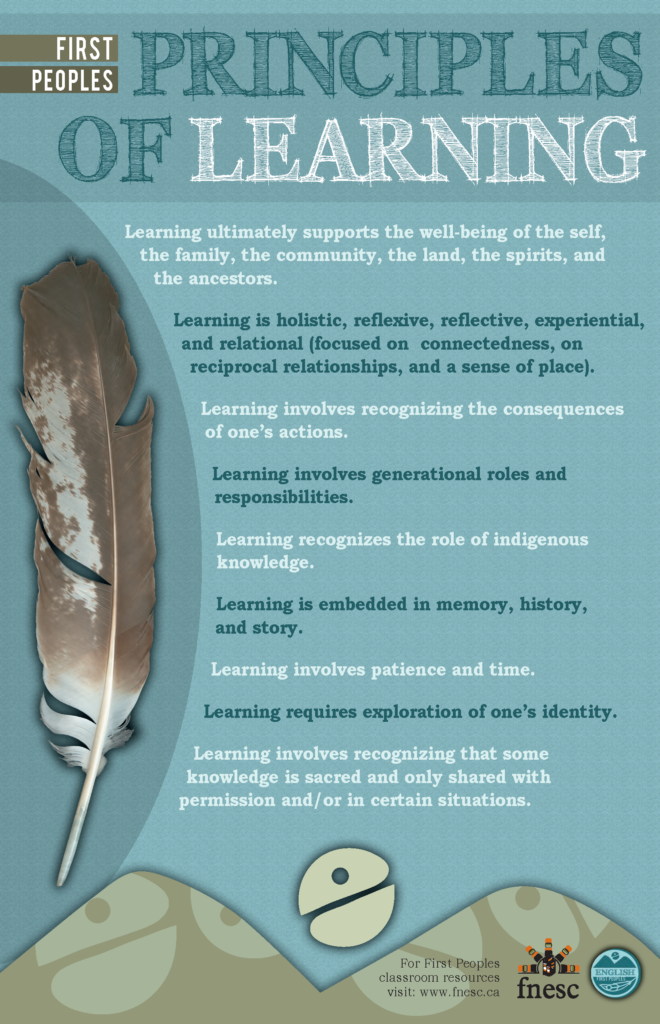Module 8: Community-based Learning
First Peoples Principles of Learning
When developing a safe space for community collaboration with Indigenous Peoples, we should also be aware of the First Peoples Principles of Learning.

The First Peoples Principles of Learning represent common elements in the varied teaching and learning approaches relevant to Indigenous communities.
Learner notes
It is important to recognize that the First Peoples Principles of Learning cannot represent the teaching and learning practices of all Indigenous Nations. The principles are a guide.
Source and recommended readings: First Peoples Principles of Learning – First Nations Education Steering Committee FNESC
First Peoples Principles of Learning
The principles are as follows:
- Learning ultimately supports the well-being of the self, the family, the community, the land, the spirits, and the ancestors.
- Learning is holistic, reflexive, reflective, experiential, and relational (focused on connectedness, on reciprocal relationships, and a sense of place).
- Learning involves recognizing the consequences of one‘s actions.
- Learning involves generational roles and responsibilities.
- Learning recognizes the role of Indigenous Traditional Knowledges.
- Learning is embedded in memory, history, and story.
- Learning involves patience and time.
- Learning requires exploration of one‘s identity.
- Learning involves recognizing that some knowledge is sacred and only shared with permission and/or in certain situations.
As you read and learn the First Peoples Principles of Learning, you can include the word “collaboration” wherever you see the word “learning” to apply to community-based learning.
Learner notes
Following the First Peoples Principles of Learning will assist you with developing a safe digital space for Indigenous and all learners.
Attributions
- “The First Peoples Principles of Learning” poster by the First Nations Education Steering Committee is being used under fair dealing.

